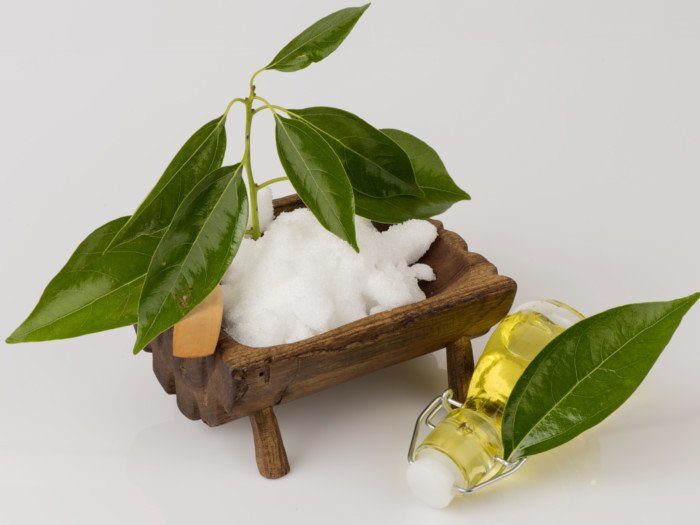In the realm of aromatherapy and natural wellness, few essences possess the allure and therapeutic potency of rose essential oil. Revered for centuries across cultures and cherished for its delicate fragrance and multifaceted benefits, rose oil stands as a testament to nature’s elegance and healing capabilities. Derived from the petals of the Rosa damascena or Rosa centifolia flowers, this precious oil undergoes a meticulous extraction process to capture its essence, resulting in a product that not only delights the senses but also nurtures the body and mind.
History and Cultural Significance
The use of roses for their aromatic and medicinal properties can be traced back thousands of years. Ancient civilizations such as those of Persia, Egypt, and Rome revered roses not only for their beauty but also for their therapeutic value. Roses were integral to rituals, cosmetics, and even medicine, symbolizing purity, love, and luxury. The art of extracting essential oils from roses likely originated in ancient Persia, where the steam distillation method was perfected and passed down through generations.
Production Process: From Petal to Oil
The production of rose essential oil is a labor-intensive and meticulous process that begins with the careful cultivation of rose bushes. The most commonly used species for oil extraction are Rosa damascena and Rosa centifolia, prized for their potent aroma and therapeutic properties. Harvesting typically occurs during the early morning hours when the flowers are at their peak fragrance.
After harvesting, the petals are swiftly transported to the distillation facility to preserve their freshness. The petals are then subjected to steam distillation—a process that involves passing steam through the petals to release the essential oil molecules. The steam carrying the oil vapors is then cooled and condensed, separating the essential oil from the water. Due to the high concentration of oil in rose petals, it takes a significant amount of flowers—often several kilograms—to produce a small amount of oil, making rose essential oil one of the most precious and expensive oils in the world.
Aroma Profile and Chemical Composition
The aroma of rose essential oil is renowned for its rich, floral scent with sweet and subtly spicy undertones. This complex fragrance profile is attributed to its unique chemical composition, which includes compounds such as:
- Citronellol: Provides a fresh, floral scent.
- Geraniol: Adds a rosy, sweet aroma.
- Nerol: Contributes to the delicate floral notes.
- Phenyl ethyl alcohol: Gives the oil its characteristic rose-like scent.
These compounds not only define the aroma of rose oil but also contribute to its therapeutic properties.
Therapeutic Benefits of Rose Essential Oil
Rose essential oil offers a wide array of therapeutic benefits for both physical and emotional well-being:
- Skin Care: Rose Essential oil is highly valued in skincare for its ability to hydrate, soothe, and rejuvenate the skin. It is used to improve skin texture, reduce the appearance of fine lines and wrinkles, calm redness and irritation, and promote an even skin tone.
- Emotional Support: The aroma of rose oil is emotionally uplifting and comforting, making it a valuable tool in aromatherapy for relieving stress, anxiety, and depression. It helps create a sense of well-being and emotional balance.
- Hormonal Balance: Rose oil is believed to have hormone-regulating properties, particularly beneficial for women during menstruation and menopause. It may help alleviate symptoms such as cramps, mood swings, and hormonal fluctuations.
- Antioxidant and Anti-inflammatory Properties: Rich in antioxidants, rose oil helps protect the skin and body from oxidative stress caused by free radicals. It also exhibits anti-inflammatory properties, making it beneficial for soothing inflamed skin conditions.
- Aphrodisiac Properties: Throughout history, rose oil has been celebrated for its aphrodisiac qualities, promoting intimacy and enhancing sensuality.
Methods of Application
Rose essential oil can be used in various ways to harness its therapeutic benefits:
- Aromatherapy: Diffuse rose oil in your home or workspace using a diffuser to create a calming and uplifting atmosphere. The aroma helps reduce stress and promote relaxation.
- Topical Application: Dilute rose oil with a carrier oil (such as jojoba, almond, or coconut oil) before applying it directly to the skin. It can be used in facial serums, moisturizers, body oils, and massage blends to nourish the skin and promote a youthful complexion.
- Bath: Add a few drops of rose oil to your bathwater for a luxurious and aromatic bathing experience. This method helps relax the body and mind while hydrating the skin.
- Perfumery: Due to its exquisite fragrance, rose oil is a popular choice for perfumery. Add a drop or two to unscented lotions, creams, or body oils to enjoy its beautiful scent throughout the day.
Safety Considerations
While rose essential oil is generally safe for most people, it is potent and should be used with care:
- Skin Sensitivity: Always dilute rose oil before applying it to the skin, especially if you have sensitive skin. Perform a patch test before using it extensively.
- Pregnancy and Children: Pregnant women and young children should consult with a healthcare professional before using essential oils, including rose oil.
- Quality: Choose high-quality, pure rose essential oil from reputable suppliers to ensure its effectiveness and safety. Look for oils that are organic and free from additives or synthetic fragrances.
Conclusion
In conclusion, rose essential oil stands as a timeless symbol of beauty, luxury, and therapeutic efficacy. Whether used for its aromatic allure, skin-nourishing properties, or emotional benefits, rose oil continues to captivate and inspire. Its rich history, coupled with modern scientific validation, underscores its status as a prized botanical treasure. Embrace the essence of rose and embark on a fragrant journey of holistic well-being and sensory delight.
From ancient civilizations to contemporary wellness practices, the journey of rose essential oil is a testament to its enduring appeal and profound impact on human health and happiness. As you explore the myriad benefits of rose oil, you discover not only its tangible effects on the body but also its intangible ability to uplift the spirit and enrich the soul. Whether used in skincare rituals, aromatherapy sessions, or moments of self-care, rose oil invites you to indulge in the essence of nature’s beauty and embrace the transformative power of botanical wellness.









